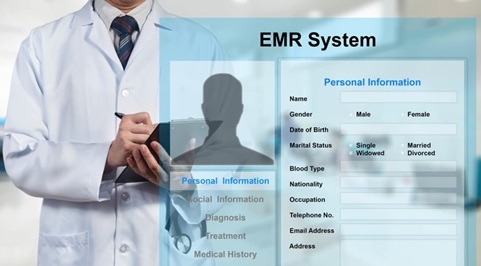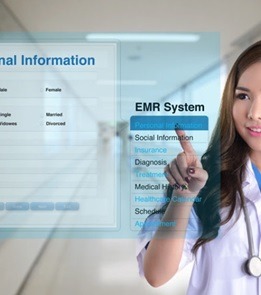Advanced healthcare organizations have opened their gates to EMR to keep their medical records more efficiently. But there are still leading healthcare organizations that have mixed feelings towards the EMR system.
Like all other systems, it has several advantages and disadvantages. It reduces the amount of error and enhances the quality of treatment. If you want to know more about the pros and cons of EMR, keep reading this article.
What is EMR?
The word EMR is an abbreviation for Electronic Medical Records. It records the medical history of a patient, which includes all major and minor details. This record helps a doctor to continue the treatment and check the improvement.
What are the pros of EMR?
EMR has been introduced to improve the condition of healthcare centers. They have a lot of benefits, and some of them are;
1. Error-free data
When we record any data manually, there are chances of making errors. Replacing it with a computer-based system eliminates the chances of making mistakes. With the help of EMR, one can make a detailed patient profile without any errors. Moreover, when we record incorrect data, the effectiveness of treatment also decreases.
2. Easy accessibility
The best thing about EMR is, anyone with authority can access it. So, if your surgeon needs the reports of your previous tests, they can get them from the system. It ensures quick responses and accurate medications.
3. Better recording
EMR is solely used for recording the medical information of patients. You can add details like medical history, prescribed list of medications, test results, allergies, diet, health issues, and doctor’s notes in the EMR system. So, you can track this data anytime.
It is a more organized and efficient way of recording data than keeping information on paper sheets and files. Moreover, there is no space limit with EMR; you can record as much data as needed.
4. Smoother workflow
Recording all patient details on EMR enhances the workflow of a healthcare institution. Anytime the data can be accessed and used. So, patients do not suffer from any unwanted delay. Moreover, doctors can treat their patients more efficiently with all the test results and medical reports ready at hand.
Other than that, EMR records are digital data, so organizing them is easier than physical data records, and there is a chance of losing valuable files. By choosing the right EMR for your medical practice, you can skip this risk.
5. Alerts
Another best thing about the EMR system is, it gives alerts of new appointments, checkup sessions, insurance reminders, test result updates, changes of medication, and doctor’s visiting time. Thus, you always stay updated and do not miss any important schedule.
These are all the advantages of using an EMR system.
What are the cons of EMR?
Every coin has two sides. Being a computerized system, EMR has some drawbacks. They are;
1. Costly system
The EMR system is quite costly. To use EMR, you need EMR software. The software can cost a lot which every healthcare organization cannot afford. Moreover, to use the maximum potential of ERM, your organization needs to be technologically advanced.
2. Technical default
EMR can only be accessed with desktops. As we all know, malfunction in software occurs now and then. Sometimes due to overuse, a system totally crashes. Once the EMR system stops working, the workflow of your organization will collapse. You cannot access or use any record without fixing the system.
3. Training
After installing an EMR system in your healthcare center, you need to train your employees to use the software efficiently. The training takes a considerable amount of time. Only when they get the hang of it can they work with ease.
4. Security
When you record all the data digitally, there comes the question of security. Though the EMR system has strong cyber security, professional hackers can hack the system and misuse all your stored data. Regardless of how strong your security system is, the chances of data breaching are always there.
5. Updates
The data of the EMR system requires daily updating. It increases the workload of your staff. Every day numerous tests are performed, several patients enroll, and some get discharged. You need to update every detail in the record. Moreover, if you are collaborating with a new pharmacy or organization, their details must be included in the system.
Conclusion
These are some pros and cons of the EMR system. After analyzing all the points, you can make a decision. Installing every new system is not essential. You need to do your research to understand its practical advantages. Organizations that are using EMR have given positive feedback.
Despite the drawbacks, using EMR has enhanced the efficiency of treatment and ensured better conditions for patients. That is why almost every leading medical organization is using the EMR system and enjoying its benefits.


